Three hammers, with hand imprints on the handles, have been kept at the house of Lobsang Tashi for more than 600 years.
“This imprint here is the evidence of the development of the traditional technique from generation to generation,” Lobsang Tashi said proudly while stroking the hammers in the showcase.
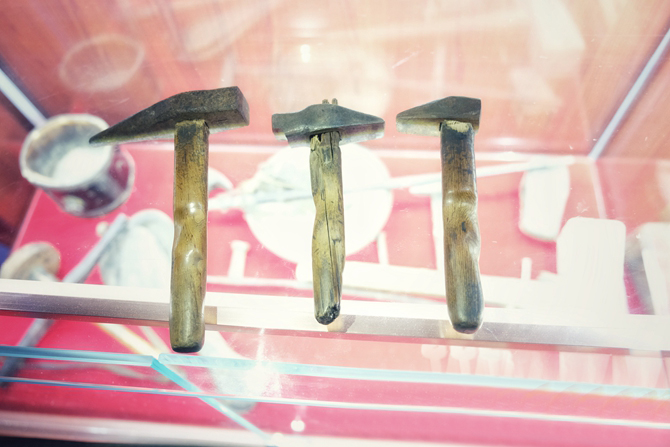
Lobsang Tashi, 55, is the 14th-generation inheritor of traditional metal casting technique. He was among the first batch of provincial inheritors of intangible cultural heritage and also a provincial master of art and crafts in Yunnan. Lobsang Tashi specializes in metal manufacturing: Five of his works have been collected by Chinese National Museum of Ethnology; To get a Tibetan knife forged by him, you have to order in advance and wait for years; Silver ornaments he made are favored by numerous tourists.
Based on fine Tibetan casting craftsmanship passed down for generations, Lobsang Tashi has promoted overseas the unique intangible cultural heritage.
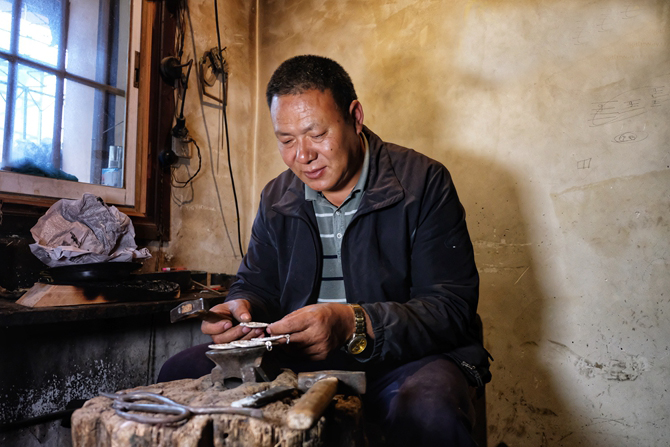
Lobsang Tashi’s factory lies in Deqin County, Diqing Tibetan Autonomous Prefecture, Yunnan Province. There, workers were processing accessories, while Lobsang was finalizing the design of tags for twelve zodiac signs. “Do you need to get to the factory so often, as a master?” asked a visitor. Noting he is willing to stay here the whole day, Lobsang Tashi said the factory is the intangible cultural heritage study base for various universities, and undergraduate and graduate students are common visitors here.
As a provincial work station for technicians, the factory also provides three training sessions annually. Thanks to his fame, Lobsang Tashi is invited to host at least 100 wedding ceremonies every year.
And when it comes to appraising events on Tibetan culture, he will surely be invited to. “Tiring indeed, but such businesses are all worth my efforts,” said Lobsang.
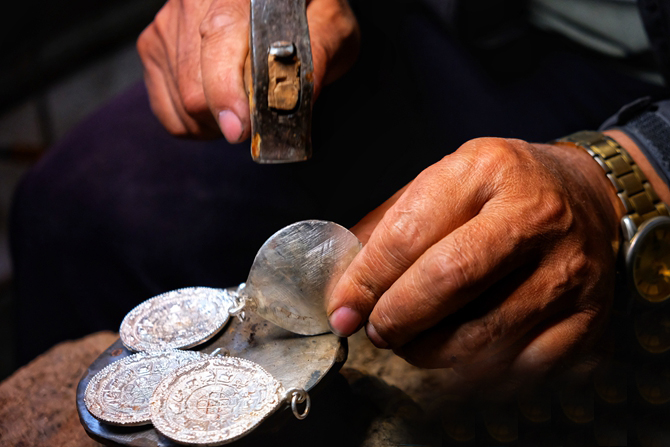
The most worthy doing, for Lobsang Tashi, is to pass down the fine craftsmanship in Tibetan culture. With the support from local cultural authorities and institutions, he has set up a protection and study center for Tibetan metal techniques in the Deqin county seat.
There preserved antiques such as little hammer, bellows, treasured wood bowl, silver elephant, the god of wealth, books and so on, all of which were passed down from 14 generations and are what he is proud of.
Lobsang Tashi said his family is the only one in China which inherits the craftsmanship of traditional Tibetan articles and ornaments for generations.
And as the eldest son, he learnt from his father, Luosang Xilao, the 13th inheritor. His father took him out to see the world after he made the first Tibetan knife at 12 and they reached as far as Katmandu in Nepal.
Having finished the learning journey, Lobsang created works totally different from those of his ancestors. His works are in greater variety and combine traditional elements with modern ones.
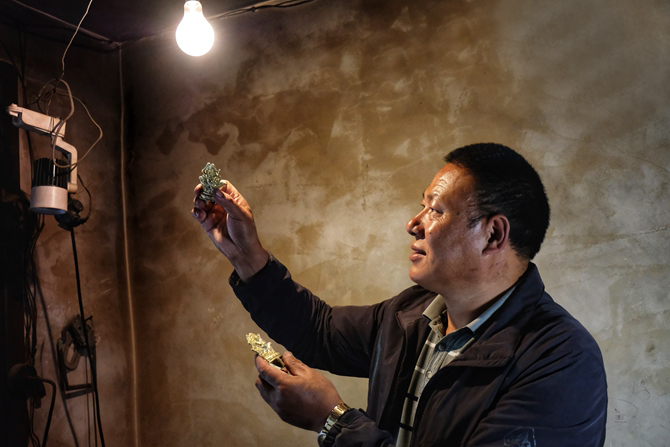
An artistic work reflects the maker’s temperament. Lobsang Tashi believes it is an air of culture. As a persistent learner, he studies in Kunming, capital of Yunnan Province for three years and furthered his study in Beijing, Shanghai, Guangzhou and Hong Kong.
Lobsang was also schooled four times abroad and therefore he improved the texture of metal surfaces with the help of metallurgical techniques he learned.
Due to the exquisite techniques and the trying of cultural integration, his works are well-accepted and loved by many.
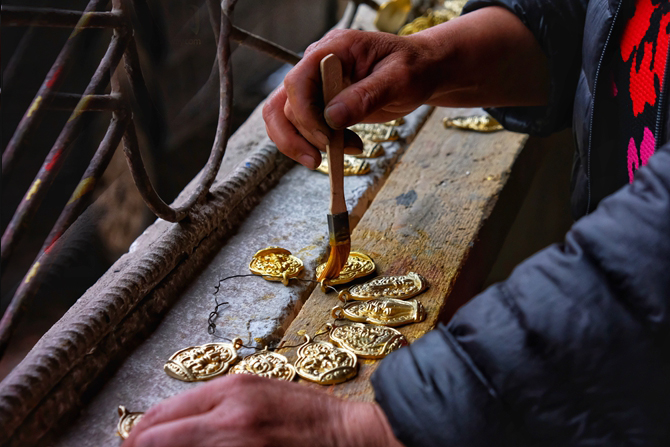
“The integration of tradition and modernity and the fusion of Tibetan culture and cultures from other ethnic groups are keys for my works to make a difference. That’s why you can see vitality in them,” said Lobsang Tashi. Showing his guests a Tibetan knife and a gold-plating Buddha, Lobsang said when traditional patterns integrated some special elements like twelve zodiacs, handiworks are popular among locals and tourists alike.
In the exhibition hall packed with tourists, Lobsang Tashi added that the affection from consumers is the best motivation of the industry. “I started up a company in 1998 and thanks to the reform and opening-up policy, it is in good business.”
“The income of the tourist shop last month was 43,000 dollars and the annual turnover of the company can reach more than 2.9 million dollars in a whole year,” said Lobsang, smiling. More and more people are becoming fans of metal products from the 14th-generation of Tibetan metal crafts.
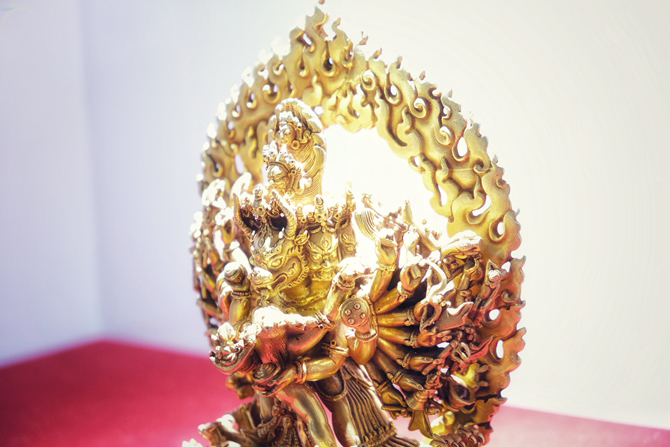
Lobsang Tashi takes the family inheritance seriously. He urged his two sons that one of them should come back and he’s going to pass down the craftsmanship to the next generation. His elder son, who works for the local TV station, is about to learn the traditional Tibetan metal casting techniques as the 15th-generation inheritor.
Reporting by Xiong Yan, Chu Donghua, Zhang Ruogu and Li Wenjun; Translating by Li Hengqiang
|











7740f3b5-9ecb-438e-9052-76cb2d4bb671.jpg)

